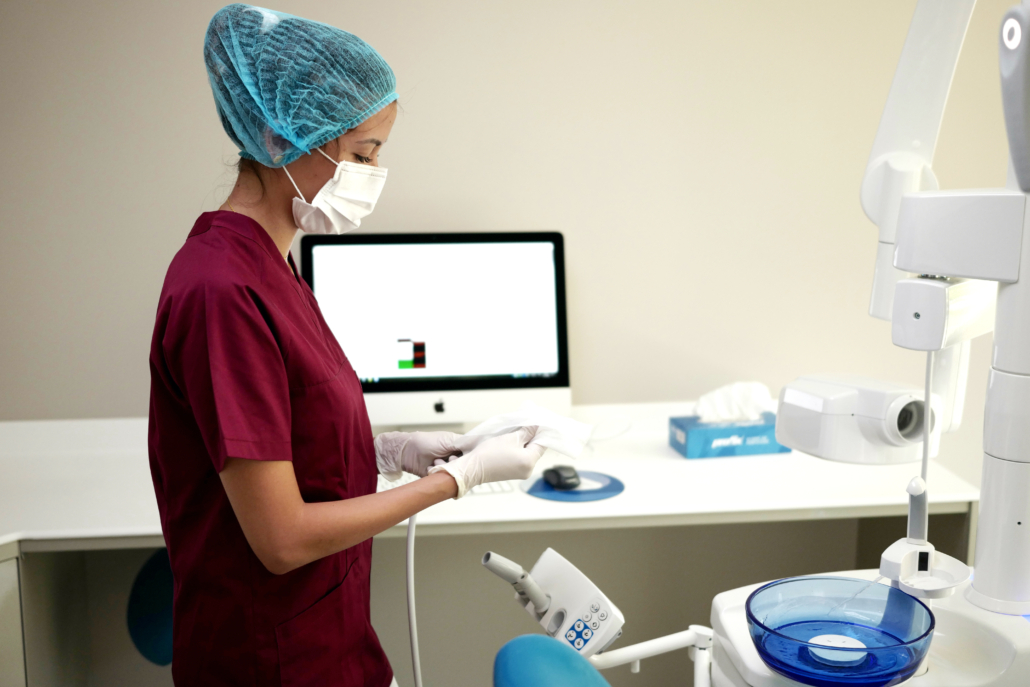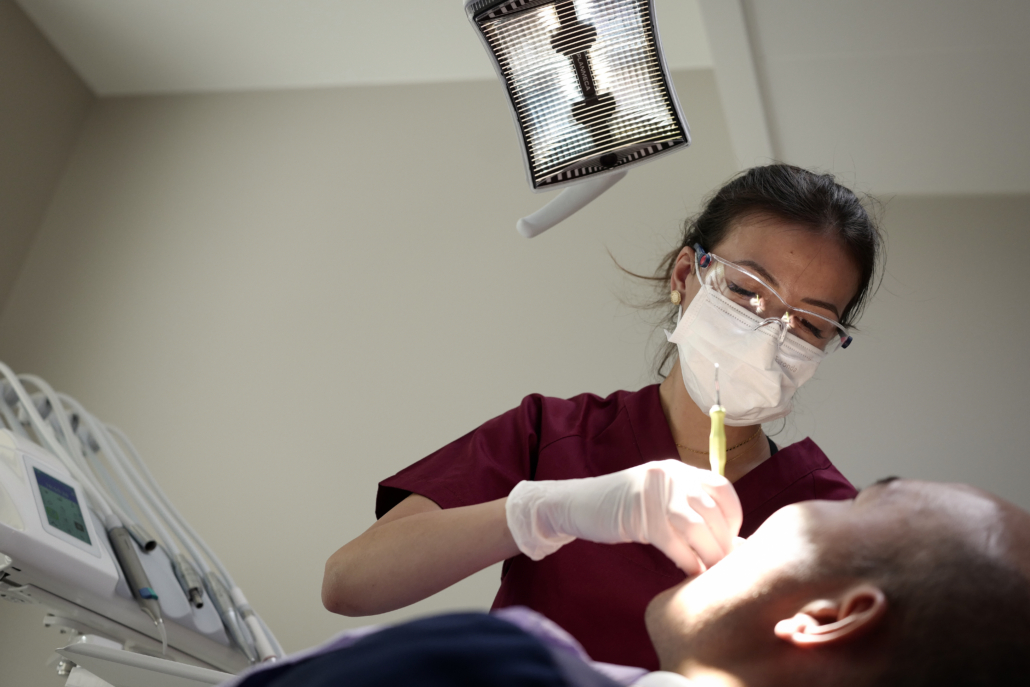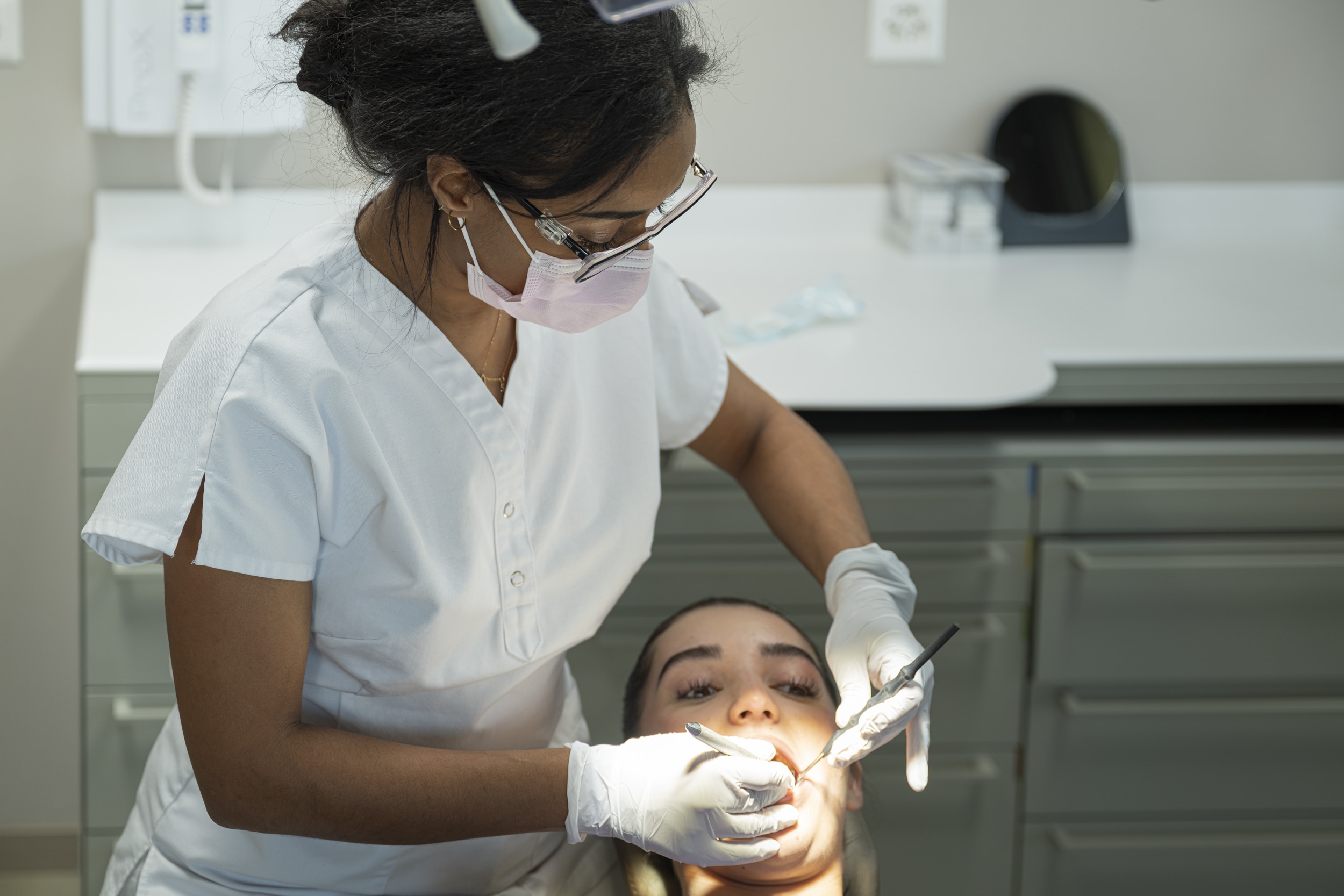4 good reasons to see a dental hygienist
Dental hygiene is the key to good health. Can you recognise a healthy mouth?
Your gums:
- Are pink
- Have no swelling
- Do not bleed when brushed
The key to good dental hygiene? Having the right daily habits!
The essential daily habit: brushing, morning and evening, with a soft bristle toothbrush and a toothpaste that emulsifies dental plaque. For bacteria, the mouth is the main port of entry into the body.
In most patients, interdental brushes should be used after brushing, as these allow for cleaning between the teeth, where most cavities and gum inflammation occur.
We also recommend using a tongue scraper once a week, especially for patients who are smokers.
In addition to this daily and rigorous hygiene, and to maintain perfect oral health, we recommend dental scaling every six or twelve months.

1. SCREENING FOR CAVITIES AND OTHER AILMENTS
At Smile and Care, our dental hygienists can screen for cavities, gum disease, and other oral conditions (defective fillings, mouth lesions, bruxism, etc.).
It is important to tell your dental hygienist about your health concerns, any medications you are taking, or any allergies, etc. Advice, preventive methods, treatments offered, and treatment frequency are individually tailored to each person.
Our dental hygienists also take check-up X-rays when needed. A dentist on our team studies these to determine the presence of tooth decay or not.
2. PREVENTING PERIODONTAL DISEASE
Periodontal diseases refer to diseases that affect the teeth’s supporting tissues – i.e., the bone and gums.
In the early stages, gum disease is often painless and undetectable by the patient. Early detection and management prevents the progression of gum inflammation (gingivitis) to decay in the bone surrounding the teeth (periodontitis). Untreated, periodontitis can lead to tooth loss.

3. AVOID DENTAL HYPERSENSITIVITY
Gum recession and tooth wear (attrition, abrasion, and erosion) cause exposure of the tooth root, resulting in sensitivities to heat, cold, sweet, acidity in citrus fruit, brushing, etc.
4. HAVE A BRIGHT SMILE
Caused by coffee, tea, red wine, and tobacco, surface stains can usually be removed through polishing, which is done at the end of a dental scaling session. In a healthy person with healthy teeth, whitening can change tooth shade. Results vary according to the colour of the tooth, and its response to the bleaching product.

How long does a dental scaling session take?
A complete dental scaling takes an average of 50 minutes to 1 hour. In cases of abundant or very hard tartar, two consecutive sessions may be required. Dental scaling should be done on average every 6 to 12 months, depending on the patient.
Want to find out more about dental scaling?
Our dental hygienists will advise you on the right treatment.

Care and emergencies 6 days a week, Monday to Saturday



